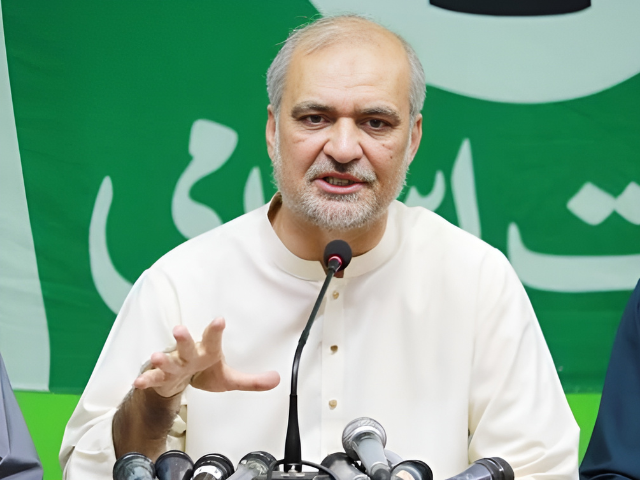Hafiz Naeemur Rehman says changes tip power towards executive, undermining independence of judiciary
Jamaat-e-Islami (JI) has launched a fierce attack on the government’s sweeping constitutional reforms, accusing ministers of “distorting” the nation’s founding document and concentrating power in the hands of the executive.
Hafiz Naeemur Rehman, the party’s ameer, vowed to continue fighting to restore what he described as the constitution’s original integrity after the 27th constitutional amendment passed the Senate with a two-thirds majority. The measure now awaits a vote in the National Assembly.
The sprawling amendment contains 59 proposed clauses, including provisions that have sparked controversy. Article 243 would restructure military command, while Article 248 seeks to give the president lifelong legal immunity.
Under Article 200, the President will also be empowered to transfer Supreme Court judges between jurisdictions. Perhaps most controversially, the amendment proposes the creation of a constitutional court, which critics argue would fundamentally tip the balance of judicial power.
Read more: 27th Amendment rushed through the Senate under repeal
Addressing members of the Lahore Bar Association at Aiwan-e-Adl, Rehman said his party had consistently defended the constitution throughout Pakistan’s history, but warned that these changes would give the executive branch decisive control over judicial appointments and the separation of powers.
He took particular aim at proposals to change the title of Chief Justice of Pakistan to Chief Justice of the Supreme Court – an adjustment he claimed would allow the prime minister to handpick the country’s highest judge. “Now the head of the Constitutional Court will be whoever the prime minister chooses,” he said. “This is direct interference and an attempt to influence the judiciary.”
The reforms, he argued, violated the basic spirit of the constitution. “No individual, regardless of their power, should be given immunity from the law,” he said.
Rehman also disputed Prime Minister Shehbaz Sharif’s claims of economic progress, dismissing references to stock market performance as disconnected from the struggles of ordinary Pakistanis. “The prime minister keeps pointing to the stock market to claim that the economy is moving in the right direction, but the real economy and the lives of ordinary Pakistanis tell a completely different story,” he said.
He accused the public of hypocrisy in their dealings with the establishment, suggesting parties who praised or condemned the establishment depending on their own interests. “When the establishment supports us, we say ‘zindabad’ (long live) and when it supports someone else, we say ‘murdabad’ (death to),” he said. “This hypocrisy must stop.”
The JI leader also criticized the Senate’s appointment process, claiming financial influence determined who secured seats in the upper house, and condemned Punjab’s failure to hold local government elections since 2015. He described the new Local Government Act, which promotes non-party elections, as “unacceptable and undemocratic” and called for a transparent party-based party system.



